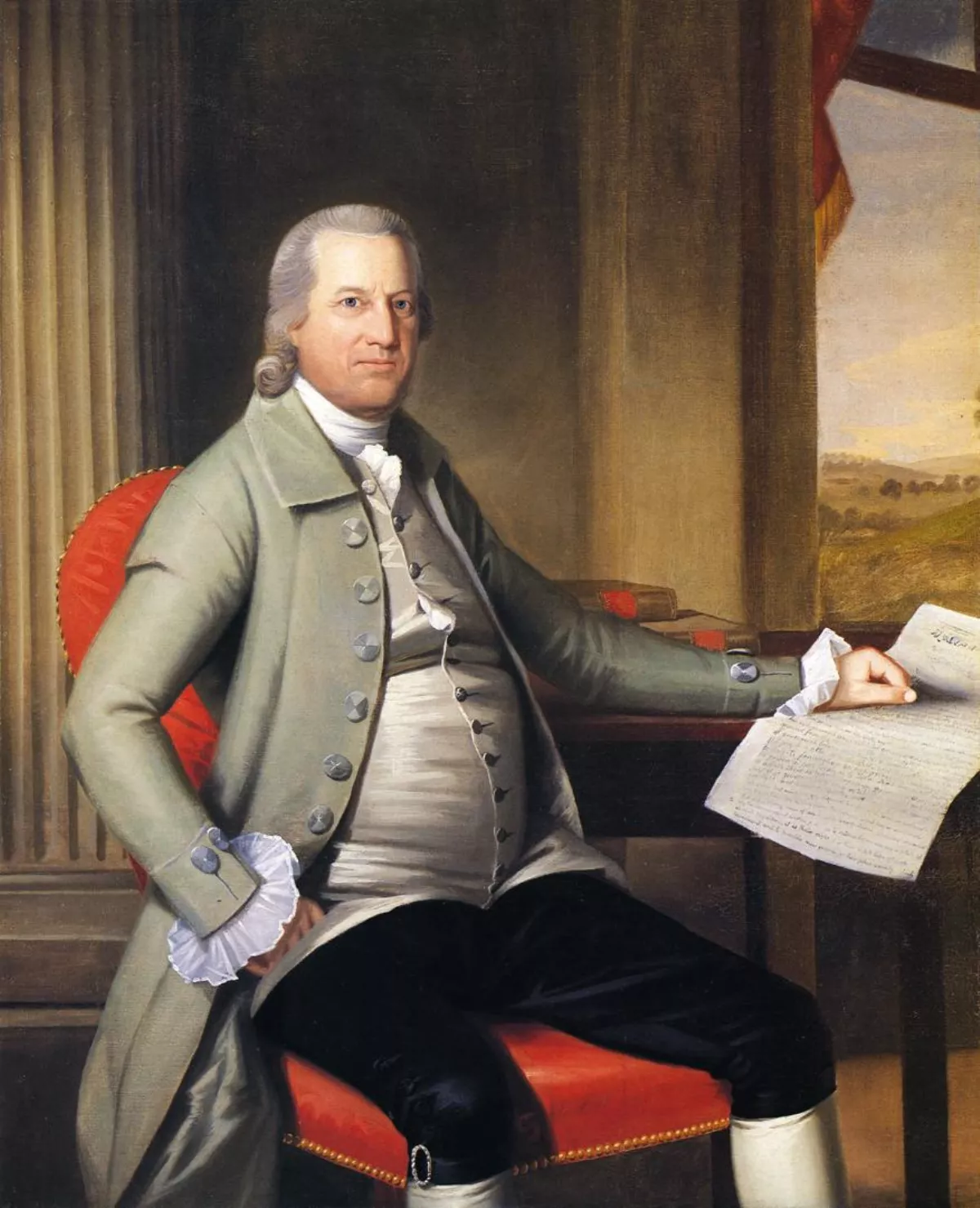 1.
1. Oliver Wolcott was a signer of the United States Declaration of Independence and the Articles of Confederation as a representative of Connecticut, and the nineteenth governor of Connecticut.

 1.
1. Oliver Wolcott was a signer of the United States Declaration of Independence and the Articles of Confederation as a representative of Connecticut, and the nineteenth governor of Connecticut.
Oliver Wolcott attended Yale College, graduating in 1747 as the top scholar in his class.
Captain Oliver Wolcott served on the northern frontier defending the Canadian border against the French until the Treaty of Aix-la-Chapelle of 1748.
Oliver Wolcott then moved to newly settled Goshen in northwestern Connecticut to practice and study medicine with his brother Alexander.
Oliver Wolcott then moved to Litchfield and became a merchant; he was appointed sheriff of the newly created Litchfield County, Connecticut, serving from 1751 to 1771.
Oliver Wolcott had two careers during the war years as one of Connecticut's principal delegates to the Continental Congress and a militia officer.
Oliver Wolcott participated in the American Revolutionary War as brigadier general and then as major general in the Connecticut militia.
Early in the growing struggle with Great Britain, Oliver Wolcott made it clear that the colonists would not give up their rights and privileges.
Oliver Wolcott led 300 to 400 volunteers from his brigade to help General Horatio Gates and Benedict Arnold defeat General John Burgoyne at the Battles of Saratoga.
Oliver Wolcott was largely unsuccessful in his combat with Major General William Tryon.
Oliver Wolcott was asked, along with Richard Butler and Arthur Lee, to negotiate a peace treaty with the Six Nations at Fort Schuyler.
Oliver Wolcott was elected to the Continental Congress in 1775.
Oliver Wolcott became seriously ill in 1776 and did not sign the Declaration of Independence until some time later.
Beyond his postwar diplomatic role, Oliver Wolcott aspired to higher office.
Oliver Wolcott was elected Lieutenant Governor of Connecticut as a Federalist in 1786 and served in that position for ten years.
Oliver Wolcott served as a judge of the Connecticut Supreme Court of Errors from 1784 until his death.
In 1798, Fort Washington on Goat Island in Newport, Rhode Island was renamed Fort Oliver Wolcott and was an active fortification until 1836; it later became the site of the United States Naval Torpedo Station.